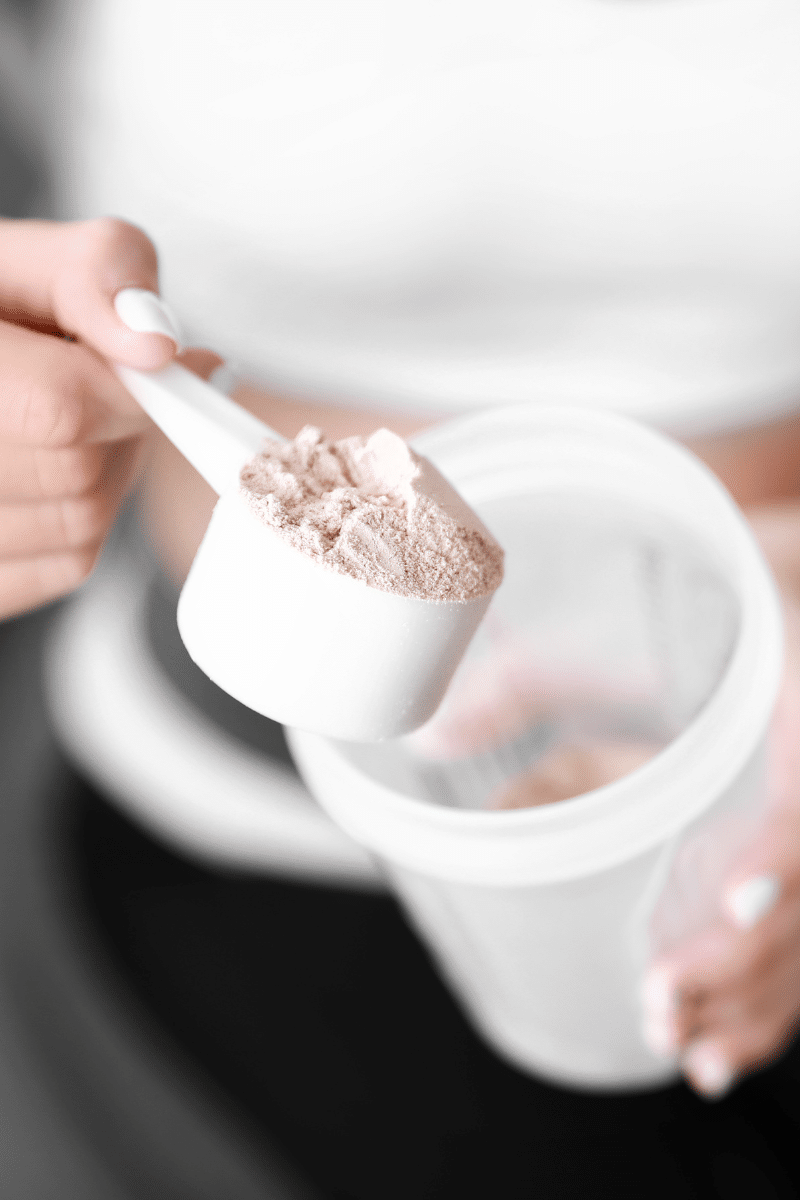February 21st, 2024
A Primer on Protein Powder
Protein powder has surged in popularity, becoming a staple in the diets of many exercise enthusiasts, athletes, and health-conscious eaters. The general population’s growing awareness of the importance of protein in supporting muscle growth (and overall well-being) is directly linked to this rising trend, and “research suggests protein supplementation can assist with increasing muscle mass, enhancing athletic performance and even supporting healthy weight loss” (Forbes, 2024).
Protein powder offers a convenient and efficient way to meet protein requirements, making it an appealing option for those seeking dietary flexibility. That said, is powder a suitable replacement for solid food? When is protein supplementation really necessary, and what kind is right for you? Well, if you’ve read the Nielsen Fitness blog before, I’m sure you won’t be surprised by our answer: that depends! Let’s get into it:
PROTEIN VARIETIES
Protein powders come in many forms, catering to an array of dietary preferences, health goals, and lifestyle choices. Here’s an overview of the types you’re likely to see on the shelves:
Whey Protein: Whey, derived from milk during the cheese-making process, is one of the most popular forms of protein powder. Whey protein is most known for its rapid absorption (meaning it’s quick to digest) and complete amino acid profile (the highest form of quality protein).
Casein Protein: Also derived from milk, but slower to digest.
Collagen Protein: Sourced from animal connective tissues, collagen has garnered attention for its potential benefits in supporting joint health and skin elasticity.
Plant Protein: If you’re plant-based or dairy-opposed, there are vegan options such as pea, hemp, soy, and rice protein powders. While some plant proteins are complete, others may lack certain amino acids. Blends or combining different plant protein sources can help achieve a complete profile.
Egg White Protein: Egg protein powders offer a high-quality protein source for those with dairy or animal restrictions.
Blends of protein sources, combining whey, casein, and plant proteins, provide a balanced approach, releasing amino acids at different rates for sustained muscle support. The variety in protein powders ensures that everyone can choose formulations that align with their nutritional needs and preferences, contributing to the widespread appeal of these supplements.
WHEN SHOULD I USE PROTEIN POWDER?
It’s important to note that while protein powder can be a valuable supplement, it should not replace whole food sources of protein entirely. A well-balanced diet that includes a variety of nutrient-dense foods is essential for overall health and wellness, as “no powder is giving you something you won’t get from nuts, eggs, or fish” (The Strategist, 2024). Before incorporating protein powder (or any supplement) into your routine, it’s advisable to consult with a healthcare professional or registered dietitian to ensure the product aligns with your individual needs and health goals.
On that note, here are a few scenarios where protein might make sense for you:
- Insufficient Dietary Protein: For those who struggle to meet daily protein requirements through whole foods, protein powder can serve as a convenient and efficient way to supplement intake. If you’re unsure of whether or not you are meeting protein requirements, talk to a dietician or personal trainer. Nielsen Fitness offers nutritional support – in-home and online through virtual personal training – alongside every fitness program, though it is not a requirement.
- Convenience and Portability: Protein powder is convenient for those with busy lifestyles who may find it challenging to prepare or consume whole food protein sources throughout the day.
- Post-Workout Recovery: After intense exercise, especially strength training, protein powder can help facilitate muscle recovery and repair by providing a quick source of amino acids.
- Weight Management: Protein powder can be helpful in managing caloric and macronutrient intake, particularly for those aiming to control their weight or body composition.
- Plant-Based Diets: Individuals following vegetarian or vegan diets may use plant-based protein powders to ensure they meet their protein needs without relying solely on animal products.
- Age-related Muscle Loss: Older adults (or individuals with medical conditions that affect muscle mass) may benefit from protein supplementation to support muscle preservation. That said, “strength training is THE most important way to prevent age-related muscle loss” (Marily Oppezzo, Nutrition Scientist and Head of the Stanford Lifestyle Medicine Nutrition Pillar, 2024). Nielsen Fitness specializes in older adult fitness. We’ve worked with hundreds of in-home and online clients with muscle retention goals.
- Post-Illness or Surgery: There may be increased protein requirements for healing during recovery from illness or surgery. Protein supplementation can be a useful aid in these scenarios.
- Specific Nutritional Goals: Athletes with high training volumes, bodybuilders, or trainees with specific fitness or body composition goals may use protein powder strategically to meet their protein targets.
FINAL WORDS
Though it will never be a better option than whole food, protein powder is a versatile and convenient nutritional tool that has found its place in the lifestyles of many. Whether it’s supporting muscle recovery after a strenuous workout, aiding in meeting daily protein requirements, or providing a quick and nutritious option for those on the go, protein powder can be a valuable supplement in the pursuit of wellness goals. As with any dietary change, consulting with a professional ensures that protein powder use aligns with individual needs, fostering a holistic approach to overall wellbeing.

